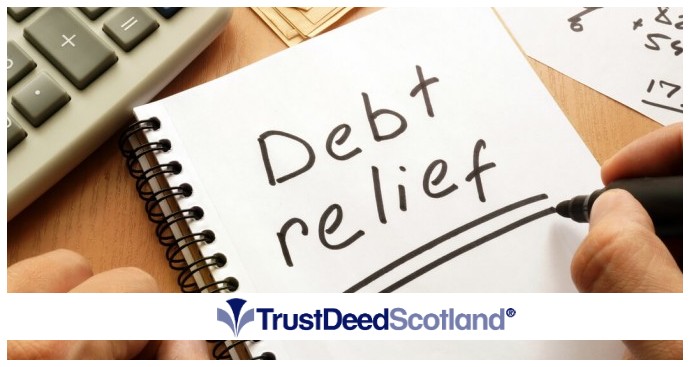A DRO, known as a Debt Relief Order, is a solution to debt only available for residents of England and Wales.
However, in Scotland, we have equivalent insolvency solutions that are just as effective. This is not uncommon due to the nuances of the different legislative systems in Scotland versus the rest of the United Kingdom, for example, there are also differences between IVAs and Trust Deeds.
The first of these alternative solutions to the Debt Relief Order in Scotland is known as a Minimal Asset Process which is a means of writing off debts that you would struggle to repay within a reasonable time.
The most common debt relief tool in Scotland is known as a Protected Trust Deed. Loosely speaking, this is Scotland’s equivalent of a Scottish IVA.
You can find out more about the Benefits of Trust Deeds and Risks of Trust Deeds by calling Trust Deed Scotland® on 0141 221 0999. Try our Trust Deed Wizard to find out if you would qualify for a Trust Deed.
Likewise, with both MAP and DRO, there is a Scottish equivalent of bankruptcy known as Sequestration.
Lastly, in terms of legislated, formal statutory debt management solutions open to Scottish residents, there is the Debt Arrangement Scheme.
Again, you can find out more about both the advantages of DAS and disadvantages of DAS by calling Trust Deed Scotland on 0141 221 0999.
Debt Relief Order vs. Minimal Asset Process?
Sequestration or Bankruptcy are the most severe forms of insolvency, with the biggest risks attached to them and consequences for homeowners and those with certain careers. Entering into either DRO or MAP is a decision that shouldn’t be taken lightly, and only after speaking to a qualified money advisor. Although both DRO and MAP are formal debt solutions, you do not need to appear in court.
Both the Minimal Asset Process in Scotland and the Debt Relief Order in England or Wales are completely free to apply for.
There is no minimum amount of debt that you can owe in order to be eligible for a Minimal Asset Process and the maximum is £25,000. The maximum amount of debt required to be eligible for a Debt Relief Order in England or Wales is £50,000.
For an DRO application, you’ve got no more than £75 left over each month after you’ve paid your typical household expenses. For a MAP application, you have no disposable income.
You cannot apply for either the Debt Relief Order or Minimal Asset Process if you are a homeowner and if you have a car valued at over £3,000, you cannot apply for a Minimal Asset Process.
Debts are written off with a Debt Relief Order after 12 months whereas the Minimal Asset Process duration is 6 months.
Self-employed, small business debt help solutions exist but generally, a Debt Relief Order or Minimal Asset Process may not be the best way of getting your finance back on track due to the restrictive nature and impact on your ability to obtain credit for cashflow purposes.
What debts can be included in a DRO/MAP?
Most unsecured debts can be included in a Debt Relief Order, or Minimal Asset Process in Scotland including credit cards, personal loans and council tax arrears.
Debts that cannot be included in a Minimal Asset Process or Debt Relief Order are debts that may have been taken out fraudulently, child maintenance arrears, court fines and student loans.
Is the Minimal Asset Process right for you?
If you would like to find out if MAP bankruptcy is right for you, you can try our online wizard tool or call us on 0141 221 0999. When you’re looking for Debt Help in Scotland, we would always recommend that you speak to an experienced debt adviser.
You may similarly be asking yourself is a Trust Deed right for me, or is a DAS worth it. These are perfectly normal questions that we’re asked on a daily basis, and our experienced debt advisers not only specialise in providing debt advice but regularly get praised on Trustpilot for being non-judgemental and friendly.
If you are considering reaching out for help with debts, debt advice reviews are an excellent place to start. We’ve gathered thousands of reviews where our customers tell us in their own words about their experience.
Trust Deed Scotland® explain the pros and cons of all solutions and offer tailored recommendations based on your individual circumstances. However, once you’ve received the facts and fully understand how you may benefit from any solution, the decision should always be made by you.
